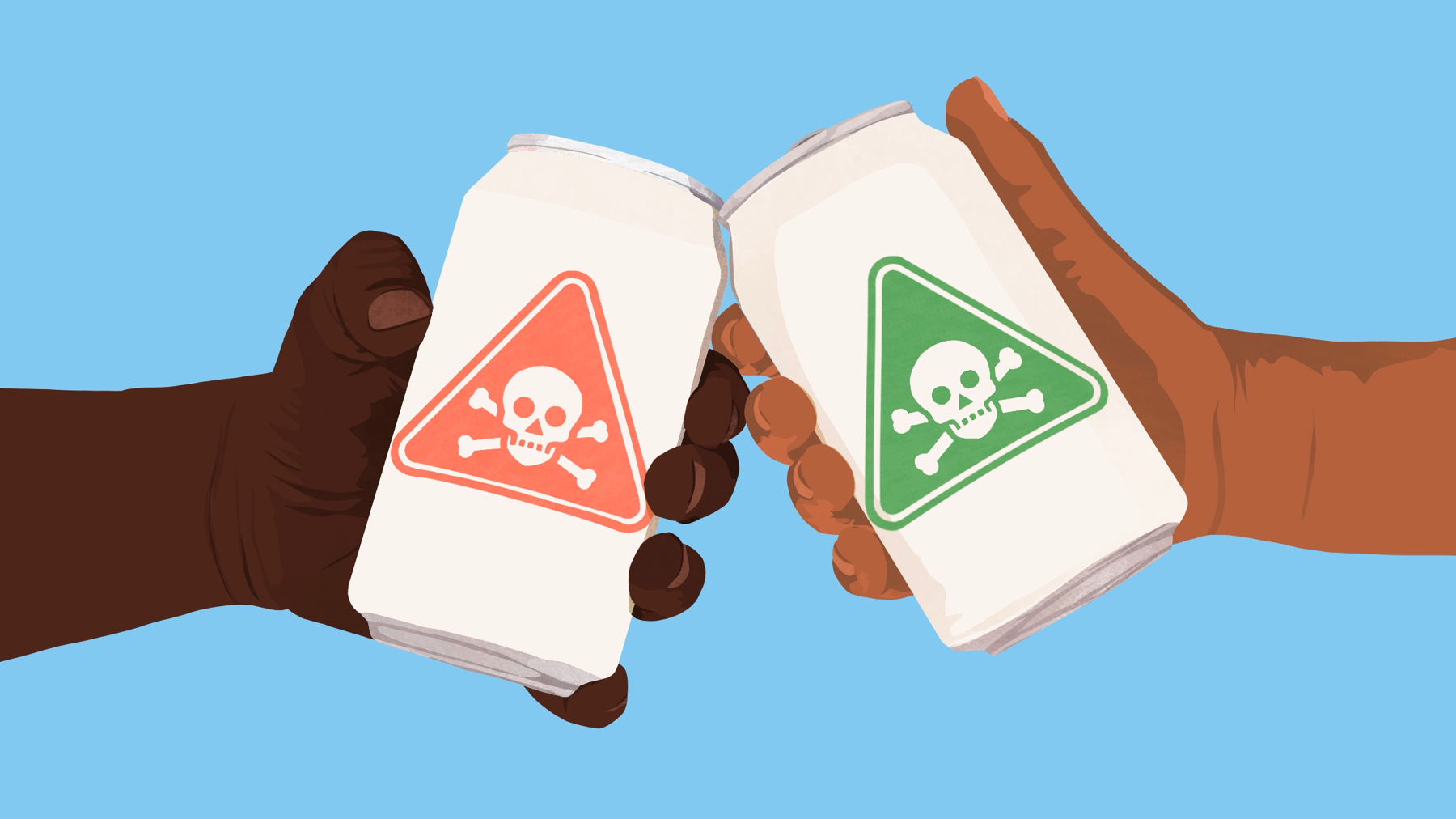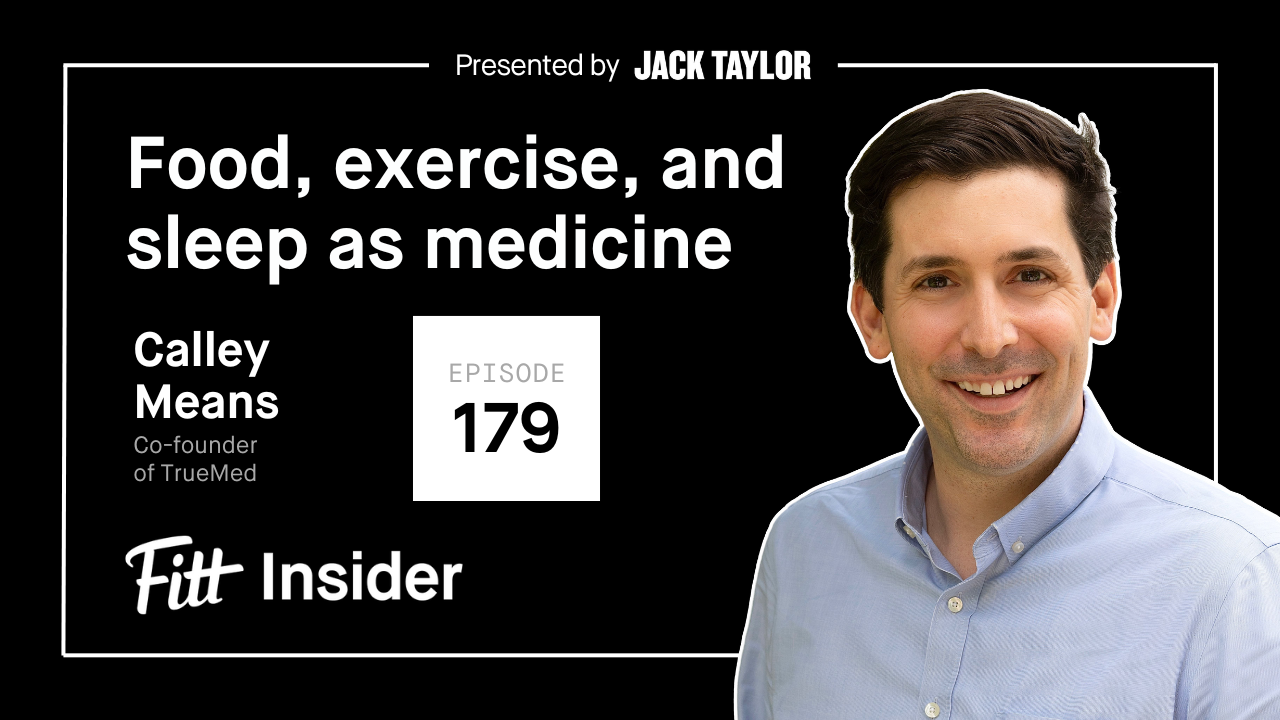Issue No. 226: Buzz Kill
 Illustration: Courtney Powell
Illustration: Courtney Powell
Choosing health over happy hour, more people are abstaining from alcohol.
Pick Your Poison
A trend we’ve been tracking for years, attitudes toward alcohol are evolving.
On one hand. Younger generations, including high schoolers and college students, are drinking less — while 22% of all US consumers are attempting to cut back, per Nielsen.
On the other. In a 2021 national survey, ~25% of US adults reported binge drinking during the previous month. More concerning, excess drinking kills 140K+ Americans each year.
Sure, these examples represent the extremes, but the conversation around quitting booze is growing louder.
Resetting assumptions. After decades of contradictory advice about the potential benefits and appropriate levels of consumption, there’s growing evidence that no booze is best.
- A global study in The Lancet found “the safest level of drinking is none.”
- The World Health Organization agrees, citing no level of safe consumption.
- Canadian health officials issued new guidance, warning “no amount or kind of alcohol is good for your health.”
Gaining acceptance. Because drinking is synonymous with socializing, sobriety carries a stigma — or, as podcaster Chris Williamson put it:
“Alcohol is the only drug where if you don’t do it, people assume you have a problem.”
Changing minds, Stanford neuroscientist Dr. Andrew Huberman explored the health effects of alcohol on his podcast, stating:
“The idea that ingesting some alcohol is better than none is wrong.”
Citing Huberman, famed investor Marc Andreessen said he “paused” alcohol — prompting a response from Elon Musk, who referred to alcohol as poison.
Continuing the conversation, as more people rethink their relationship with alcohol, they’re also becoming more willing to talk about it.
Seeing is believing. A contributing factor, as wearable adoption grows, it’s impossible to ignore the harmful effects of alcohol on sleep, performance, and overall health.
Anecdotally, in conversations with device devotees, seeing alcohol’s impact on their recovery score is described as “eye-opening,” often leading to reduced or more intentional use.
Crunching the numbers, WHOOP analyzed alcohol use among members, revealing predictably bad results — with every drink consumed, resting heart rate increases while heart rate variability and recovery decrease.
Healthier Alternatives
Scaling to meet demand while defining a new category, alcohol-free upstarts are cashing in.
- The low-/no-alcohol market topped $11B in 2022, up from $8B in 2018.
- US sales of low-/no-alcohol drinks grew 15% YoY in 2022, reaching $2.5B.
- Nonalcoholic beverage startups raised a record $414M in funding last year, per Crunchbase.
Leading the charge, nonalcoholic beer maker Athletic Brewing scored a $75M investment last fall. Among spirit alternatives, Seedlip, Ritual Zero Proof, and Lyre’s are top sellers. Getting creative, brands like Ghia (botanicals), Kin (adaptogens), and CANN (THC) are concocting alcohol-free elixirs.
Head to head. Trendy as it may be, the NA market is tiny compared to Big Alcohol’s empire, accounting for 1.1% of the US market last year. Innovating to stay relevant, alcohol’s incumbents are launching hard seltzers, spiked Mountain Dew, boozy Sunny D, and nonalcoholic options of their own.
All or nothing? Health concerns aside, not everyone agrees that alcohol should be avoided entirely, citing potential benefits from social bonding and stress relief. Further, as Dr. George Koob, director of the National Institute on Alcohol Abuse and Alcoholism, told the NYT, “We did prohibition, it didn’t work.”
Looking ahead: Alcohol isn’t going anywhere. But, acknowledging the risks and providing alternatives, including alcohol-free experiences, promotes more mindful consumption. Additionally, in Andreessen’s words, engineering healthier options could have a “profound” impact on civilization.
🎙 On the Podcast

TrueMed co-founder Calley Means discusses the company’s approach to preventative wellness that lets consumers use pre-tax HSA/FSA funds for healthy purchases.
We also cover: killer food, sick care, and incentivizing healthy habits.
Listen to today’s episode here
🩺 John Mackey’s new company enters telehealth
The Whole Foods co-founder has been busy after departing the grocery chain last year.
Holistic health. While details remain sparse, Mackey has already raised $31M for a new business venture described as an “evidence-based lifestyle company.”
Incorporated as Health America LLC but operating under the Love.Life banner, early reports teased physical locations that combined food, healthcare, and wellness services.
Integrated wellness. Enabling a hybrid offering, Love.Life acquired telemedicine provider Plant Based TeleHealth, rebranding to Love.Life Telehealth.
Using lifestyle medicine to prevent and reverse chronic diseases, virtual visits will complement in-person medical offerings that promote health behavior change and a plant-based diet.
On trend. As rates of obesity and diabetes spiral out of control, killer foods are coming under greater scrutiny. Meanwhile, consumers are willing to pay a premium for nutritious and personalized eats. Taking notice, Love.Life is making food as medicine a pillar of its platform.
Be on the lookout: According to Mackey, telehealth visits are now available, and physical locations—with onsite care—will begin opening next year.
😴 Oura unveils chronotyping to optimize sleep
The smart ring maker activated Body Clock, a sleep management tool based on each member’s unique circadian rhythm.
Clocking in. Analyzing sleep, activity, and temperature readings, Oura determines the users’ chronotype—the time of day when the body is most biologically awake—to deliver personalized recommendations.
Starting with sleep, Oura will adapt the Body Clock algorithm to inform optimal times for movement, focus, and rest.
Infinity ring. Launching new features to keep members engaged (and paying) for the long run, Oura’s latest integrations quantify recovery, enable social sharing, and prevent employee burnout.
But… Although Oura pioneered the on-finger form factor, other ring makers are moving in, pushing the company to offer improved personalization and greater interoperability as competition heats up.
Looking ahead: Having already notched 1M+ users and a $2.5B valuation, Oura is still lord of the rings. But, as rivals circle, the company will have to make its metrics even more meaningful to keep the wellness-obsessed wrapped around its finger.
📰 News & Notes
- FitXR syncs VR workouts with Strava.
- Athleta, GNC, Sweaty Betty CEOs depart.
- Apollo Neuro launches sleep-sustaining wearable.
- The Vitamin Shoppe owner receives $1B+ buyout offer.
- Psychedelic therapy companies suffer setbacks, closures.
- Fitt Jobs: New opportunities in the health & fitness industry.
- Study: Gardening improves mental, physical, nutritional health.
- BeaverFit, Technogym unveil new strength equipment innovations.
- Startup Q&A: BLOCK’s Kit Hawkins on athletic training for longevity.
- US pro cyclist Kristen Faulkner DQ’d for wearing Supersapiens CGM.
- Peloton equipment manufacturer Precor shutters NC plant, enacts layoffs.
💰 Money Moves
- Love.Life, a holistic health and wellness company co-founded by former Whole Foods co-CEO John Mackey, acquired telemedicine platform Plant Based TeleHealth.
- Virtual women’s health platform Maven Clinic acquired London-based reproductive healthcare platform Naytal and will expand in the UK and EU.
More from Fitt Insider: Closing the Gender Care Gap - Australian digital hypnotherapy platform Mindset Health pulled in A$17.8M ($12M) in an oversubscribed Series A round.
- ROOK (fka RookMotion), an interoperability platform for wearables data, raised $1.7M in a pre-seed round led by NuFund Venture Group.
- Tech-enabled golf league TMRW Sports received an undisclosed investment from Dwayne Wade, Shaquille O’Neal, and Kevin Durant’s Thirty Five Ventures.
- SlamBall, a televised trampoline basketball league, closed an $11M Series A round co-led by IA Sports Ventures and Eberg Capital.
- Youth sports organization Powers Gymnastics added $16.8M in a Series A round led by Relevance Ventures.
More from Fitt Insider: The Return of Youth Sports - OpenLoop, provider of white-label telehealth support services, secured $15M in a Series A round led by Nava Ventures.
- Zus Health, an interoperability platform for electronic health records, closed a $40M funding round.
- BACX Performance Fuel, a British energy drink maker, raised £1.2M ($1.47M) in a seed round led by F1 driver Sebastian Vettel.
More from Fitt Insider: Liquid Gold - UK-based personalized nutrition platform ZOE raised £2M ($2.5M) in funding from Flight Fund.
- Amboy Street Ventures, a VC firm focused on women’s and sexual health, closed a $20M fund.
- Allergy care platform Allermi landed $3.5M in a seed round led by Nelstone Ventures.
- SpectrumAi, an autism care platform, pulled in $20M in a Series A round led by CVS Health Ventures.
- KPC LYFE, a subsidiary of healthcare business enterprise KPC Group, acquired international yoga brand Bikram Yoga.
- German healthy food vending machine company Foodji raised €21.4M ($23M) in a funding round.
- Swehl, an online community and marketplace for breastfeeding mothers, secured $1.1M in a pre-seed funding.
- Brooks Industrial Marketplace, a manufacturer, acquired strength equipment maker TuffStuff Fitness International.
Today’s newsletter was brought to you by Anthony Vennare, Joe Vennare, and Ryan Deer.